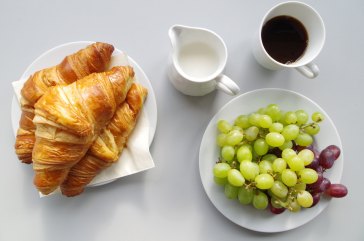15th Ukraine Breakfast Debate: “Between Red Lines: Peace or Capitulation as Conflict Resolution in Donbas?”

Ukrainian President Volodymyr Zelensky, who won both the presidential and parliamentary elections by great margins of the votes in 2019, made peace in Donbas one of his central campaign promises. After taking office, the new “Ministry for Veterans Affairs, Temporarily Occupied Territories and Internally Displaced Persons of Ukraine” was established, the resumption of the Normandy format announced and the so called “Steinmeier Formula” accepted as a basis for peace talks. This decision incited mass protests in Kyiv earlier this month, which calls for further debate on risks and opportunities for conflict resolution.
To bring some clearance into the complexities of conflict resolution, we held our 15th Ukraine Breakfast Debate on 7 November 2019 on the topic “Between Red Lines: Peace or Capitulation as Conflict Resolution in Donbas?“. Together with our experts Mariia Zolkina, political analyst at the Ilko Kucheriv Democratic Initiatives Foundation (DIF, Kyiv), Prof. Oleksiy Haran, research director at the Ilko Kucheriv Democratic Initiatives Foundation (DIF, Kyiv), and Dr. Susan Stewart, Head of Research Division Eastern Europe and Eurasia at the German Institute for International and Security Affairs (SWP, Berlin) we looked into the current strategy on Donbas and which steps the new government has taken in this regard. Our experts addressed the following questions:
- What is the Steinmeier Formula and why did it spark protests in Ukraine?
- Will the new government maintain the course of its predecessor in regard to Donbas or does it pursue a new approach to conflict resolution?
- Which are the red lines set by Ukrainian society in regard to resolving the conflict?
- Can Ukraine still count on the support of international actors?
This event was part of the new project “German Ukrainian Researchers Network” (GURN). GURN aims at establishing a German-Ukrainian network for senior and junior researchers and their organisations, strengthening country expertise and promoting joint cooperation projects. GURN is conducted in close cooperation with the Ilko Kucheriv Democratic Initiatives Foundation (DIF, Kyiv), the think tank development and research initiative think twice UA (Kyiv), the New Europe Center (NEC, Kyiv) and is kindly supported by the Federal Foreign Office.